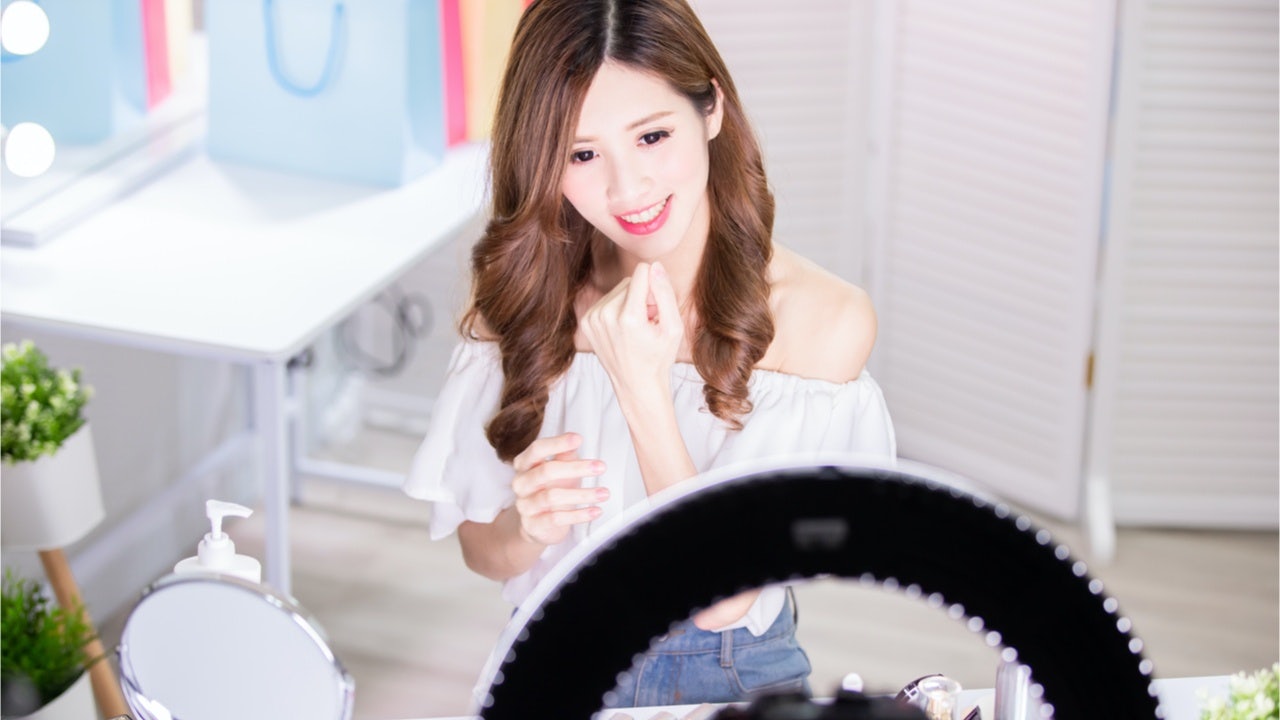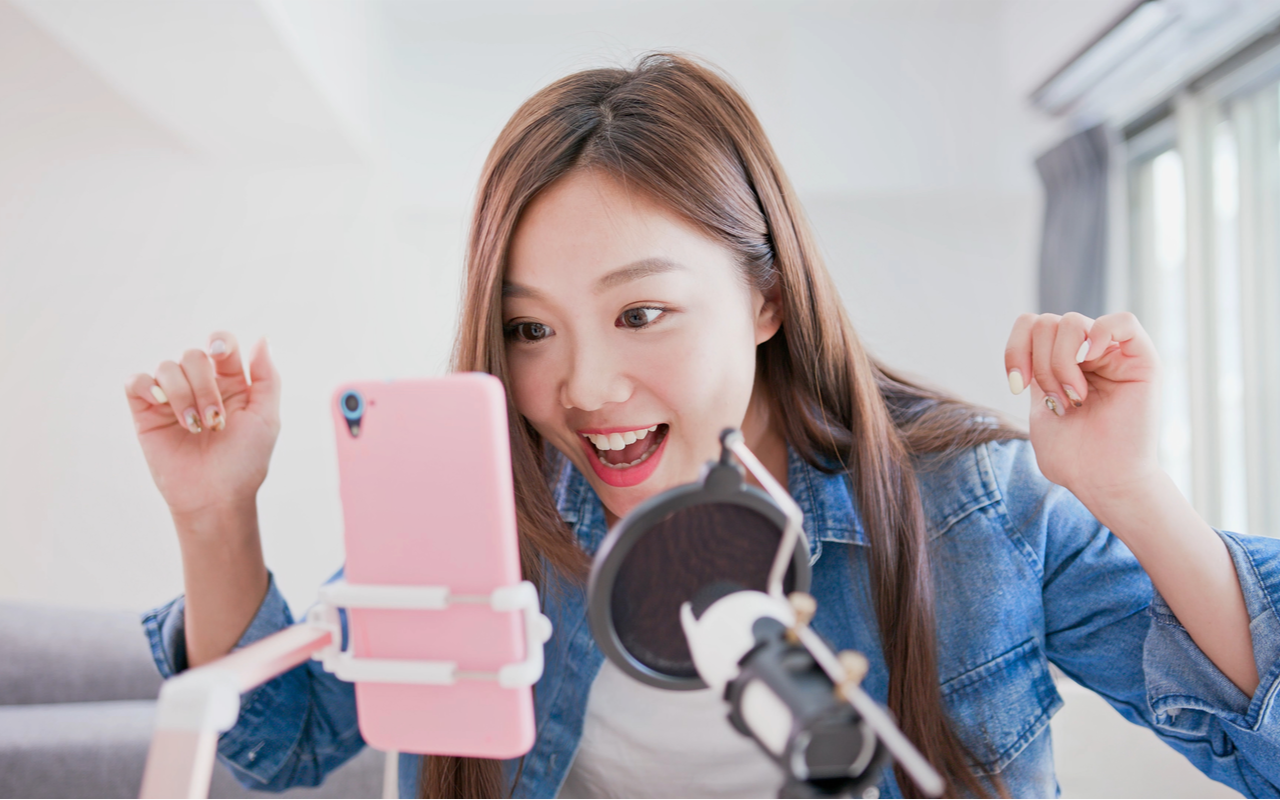As the coronavirus outbreak in China continues, its impact can be felt throughout the luxury segment — but things seem to be different for beauty brands. From young customers who shop via livestreams to brands that heavily invest in short video campaigns, the entire cosmetics industry in China is glittering like a cosmetics vlogger’s face. Funny and creative makeup tutorials, which can now be found everywhere on livestreaming platforms like Douyin and Little Red Book (Xiaohongshu), indicate that there’s another good year ahead for the beauty industry — despite the fact that a deadly virus is menacing China.
One might ask: ‘How is this particular industry thriving instead of struggling during an epidemic?’ With Chinese citizens being advised to stay at home during Chinese lunar new year, a huge number of cosmetics enthusiasts had to rely on online shopping activities and livestreaming KOLs to keep them well-informed while purchasing skincare products and makeup. In fact, China’s established system of livestreaming sales might be even more popular during an all-country lockdown.
For beauty brands, streaming technologies are a very effective way to reach China's hundreds of millions of shoppers while they’re stuck inside.
A young and growing industry#
In China, digitally-savvy millennials with more disposable income have become a highly-informed group of customers that understands the value of looking good. They are the creators and producers of most online makeup vlogs and are the fans who watch most of the content that these beauty gurus recommend. But, not to be outdone, Gen Zers have started pushing into the industry as well. "Many beauty KOLs on Douyin are from generation Z," says He Yan, a business development manager at a top Chinese vlogger/influencer agency that represents hundreds of KOLs over multiple merchandise categories. She adds that millennials are becoming a superpower of online cosmetics consumption in China and that both millennials and Gen Zers are price-sensitive yet beauty-enthusiastic.
Therefore, don’t be shocked if you see a surprisingly young person teaching his/her audience how to do a sexy makeup transformation with some basic makeup and a little bit of skill. These beauty vloggers can start their livestreaming practices from anywhere: their dorms, city parks, school hallways, or even just a restroom with a mirror. No fancy scenery is required for Douyin, and short-form beauty videos are usually 30-50 seconds long and don’t need much editing. The only requisite for attracting potential purchasers is for the host to be accessible yet creative.
According to the McKinsey Global Institute, China has become integral to nearly every sector of the global economy, and the country’s 1.4 billion population forms the largest market for luxury goods in the world. Its 2019 China Luxury report found that China is contributing to two-thirds of luxury spending’s global growth, and within upper-middle-class households, post-90's consumers are the driving force of today’s e-commerce. The amount of money they have, the number of items they purchase, the frequency of their purchases, and the time they spend online are all increasing.
More than another SARS#
Today, China’s economy is over eight times larger than it was in 2003. Back then, the cosmetic business wasn’t impacted much during the country’s SARS (severe acute respiratory syndrome) outbreak. Citing data from the national statistics bureau, from February to June of 2003, cosmetics consumption reduced by about 4 percent compared to non-SARS periods that year. It didn’t suffer a sharp fall the way other social consumer goods did, and according to the China International Capital Corporation, the consumption of makeup and skincare products fully recovered shortly after the SARS outbreak ended.
“We do recommend the market remain confident in the long-term outlook,” says Penny Peng, an analyst with China International Capital Corporation. She explains that even though the coronavirus has impacted all beauty businesses in the short term, the stickiness between online livestream watchers and key KOLs/KOCs won’t easily disappear. Moreover, she believes that the “consumption upgrade” advocated by the Chinese government will help push beauty e-commerce forward.
“Obviously, a consumption upgrade is happening across this industry,” says Elaine Chen, a senior fashion manager at JD.com. She tells Jing Daily that particular beauty products like luxury cosmetics, beauty gadgets, medical cosmetics, and daily care products have seen rapid growth in recent years. Vogue Business in China and Boston Consulting Group jointly launched a report on social retail in China stating that the year 2020 will be a turning point when luxury brands’ social media campaigns will transform into substantial online retail. Meanwhile, the report showed that 85 percent of Chinese cosmetics consumers are ready to buy before accessing these e-influencers.
As the beauty economy pushes upward, the online beauty industry won’t be easily hurt by the coronavirus. “Staying inside” policies may even bring more opportunities to cosmetic brands, beauty vloggers, and livestreaming agencies. After all, for a country with the most advanced e-commerce in the world, staying home means residents finally have some time to browse online for beauty necessities.
Most popular beauty vloggers and livestreamers halt their regular sales of beauty products during times like these and instead offer health tips, nutrition knowledge, and at-home workouts to their followers. “We can sense the intensity of the virus battle,” says Allison Wong, a beauty livestreamer with 700k followers over multiple platforms. “It's not a good time to show you’re making money, but it’s an opportunity to strengthen your follower base if the videos show you care.”

